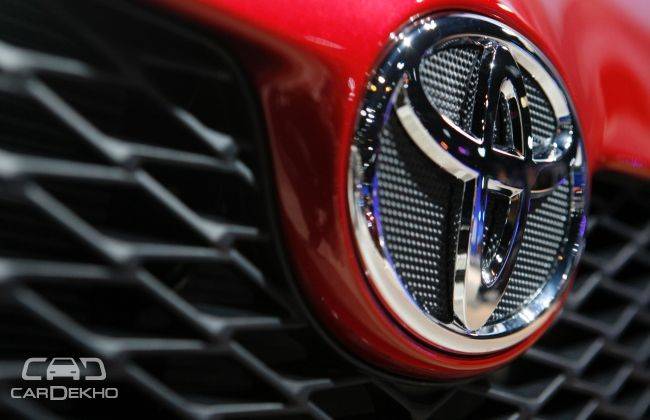Toyota 'Relooking' Operations In India -- Lashes Out At Diesel Ban
Modified On May 26, 2016 04:57 PM By Sumit
- Write a comment

Kerala has followed Delhi’s footsteps and banned the registration of new vehicles with an engine (diesel) capacity of 2,000cc and above. Carmakers are conducting themselves in an expected fashion and have made their thoughts vocal to the world. Toyota was the first one to respond.
Shekar Viswanathan, Toyota Kirloskar Motor vice-chairman and director, questioned the rationale of the ban and said, "We have already started relooking at our operations. What is hurting us is not so much the ban but the unfairness. Orders are passed without hearing us. It is going against the principles of natural justice. We feel our vehicles are being targeted”. He also said that there is a possibility that Toyota does not launch its future models in India.

Though, there is a silver lining for Toyota employees as the manufacturer is not abandoning their current operations in the country. Toyota has claimed that there are approximately 25,000 people whose jobs are directly or indirectly linked to their operations. Viswanathan stated that though, the company is quite optimistic for its newly launched model the Innova Crysta, but the car will surely will miss out on two bigger markets -- Delhi and Kerala.
It is not for the first time that carmakers have reacted to the diesel ban in a negative manner. Jaguar had previously claimed that the air in Delhi is far more dirtier than what its cars emit and Mercedes-Benz has recently put its investments on hold in India. The concept on which the ban is based (diesel engines emit more pollutants than their petrol counterparts), is itself disputed. It is hard to believe that a car which is able to comply with strict emission norms in the US and Europe is unable to comply with relatively compliant Indian emission norms.
We hope the ban over certain cars is soon eliminated to provide respite to auto enthusiasts. As far as polluting the environment is concerned, it can be addressed by using empirical data to check pollution and providing check posts for random inspection of cars to control emissions.















